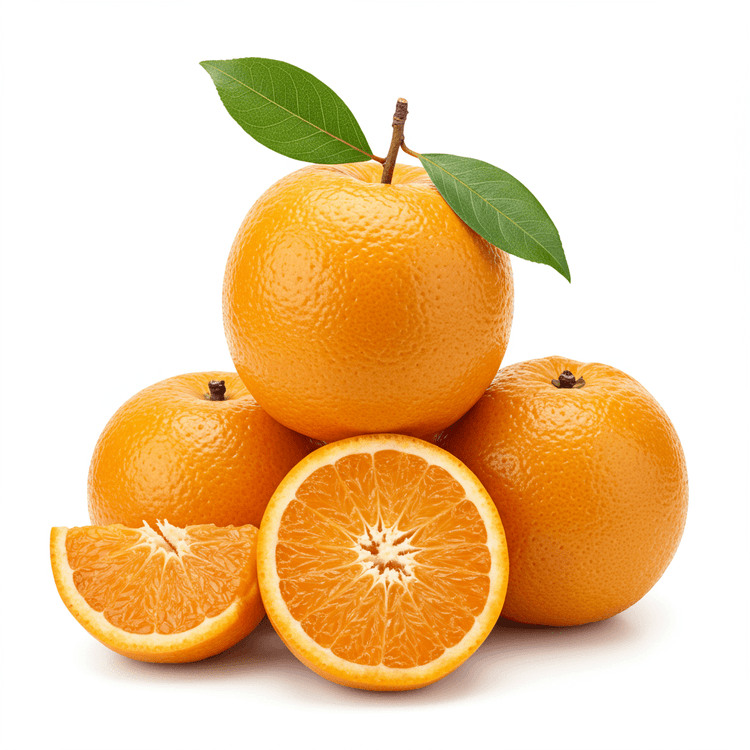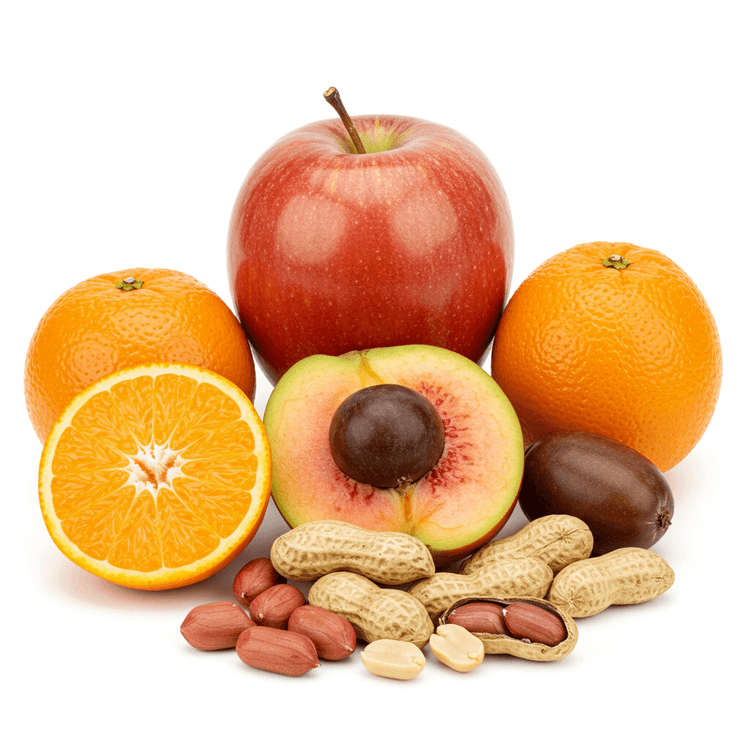
Stone Fruit
Stone fruits, also known as drupes, are characterized by their fleshy exterior and a single, hard pit (or 'stone') that encloses a seed. These fruits are celebrated for their vibrant colors, ranging from sunny yellows and oranges to deep reds and purples, and their juicy, often slightly fuzzy skin. The flavor profile is diverse, offering a delightful balance of sweetness and tartness, with some varieties boasting honeyed notes while others provide a refreshing tang. The texture of a ripe stone fruit is typically soft and yielding, making each bite a succulent experience. Popular types of stone fruits include peaches, plums, nectarines, cherries, apricots, and pluots, making them a versatile addition to both sweet and savory dishes. Savor the seasonal sweetness of juicy stone fruits, a delicious and nutritious choice for snacks and desserts.
Common Uses
- Perfect for grilling or roasting, adding a caramelized sweetness to salads and main courses. Grilled peaches or nectarines paired with burrata or grilled chicken create a delightful summer dish. - Blended into smoothies or juices, providing a natural sweetness and a boost of vitamins and antioxidants. Stone fruit smoothies are a refreshing and healthy way to start the day. - Used in baking to create pies, tarts, crumbles, and cakes. Peach pie, plum cake, and cherry cobbler are classic examples of stone fruit desserts. - Preserved as jams, jellies, and preserves, extending their shelf life and allowing you to enjoy their flavor year-round. Homemade apricot jam or plum preserves make wonderful gifts. - Added to salads, providing a burst of fresh, juicy sweetness and a contrasting texture. Sliced peaches or nectarines elevate a simple green salad. - Used to make chutneys and sauces that complement grilled meats and cheeses. Stone fruit chutney adds a tangy and sweet element to any meal.
Nutrition (per serving)
Nutrition (per serving)
Calories
68.0kcal (3.4%)
Protein
1.0g (2%)
Carbs
17.0g (6.18%)
Sugars
15.0g (30%)
Healthy Fat
0.0g
Unhealthy Fat
0.0g
% Daily Value based on a 2000 calorie diet
Nutrition (per serving)
Calories
68.0kcal (3.4%)
Protein
1.0g (2%)
Carbs
17.0g (6.18%)
Sugars
15.0g (30%)
Healthy Fat
0.0g
Unhealthy Fat
0.0g
% Daily Value based on a 2000 calorie diet
Health Benefits
- Rich in antioxidants that fight free radicals and reduce cellular damage.
- Good source of Vitamin C, supporting immune function and skin health.
- Contains dietary fiber, promoting healthy digestion and gut health.
- Provides potassium, which helps regulate blood pressure and heart health.
- Low in calories and fat, making it a healthy snack option for weight management.
- May improve sleep quality due to its melatonin content.
Substitutes
Chefadora AI is here.
Experience smarter, stress-free cooking.
Storage Tips
Stone fruits are best stored at room temperature until ripe. Once ripe, they can be refrigerated to extend their shelf life for a few days. To prevent bruising, handle them gently and store them in a single layer. Avoid storing them in plastic bags, as this can trap moisture and accelerate spoilage. For longer storage, stone fruits can be frozen. Wash, pit, and slice the fruit before freezing them in a single layer on a baking sheet. Once frozen, transfer them to a freezer-safe bag or container.

